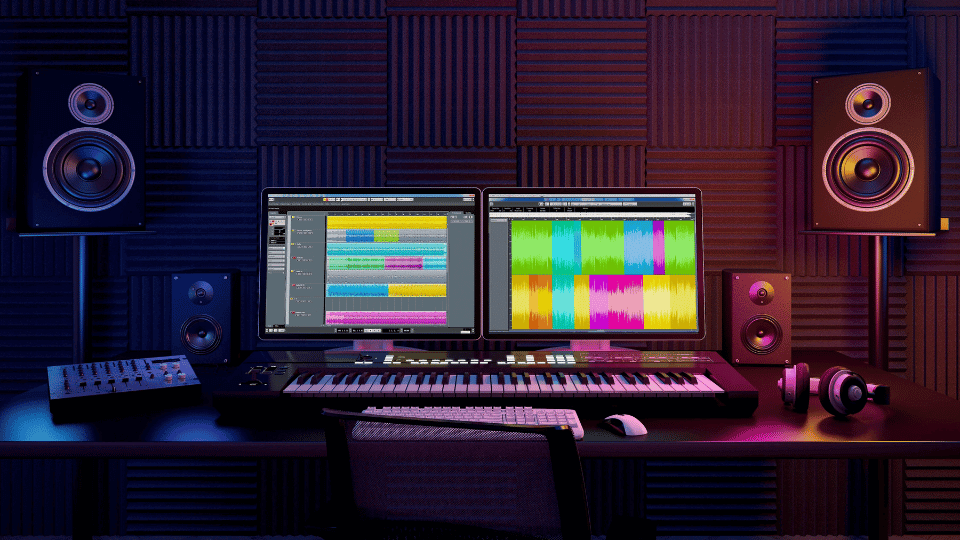Music production tools are essential for bringing musical ideas to life, shaping sounds, and creating professional-quality tracks. Whether you’re a seasoned producer or just starting in the music production world, having the right tools at your disposal can make a significant difference in your creative process and the quality of your music.
In this article, we will explore the top music production tools that are widely used in the industry today, ranging from software to hardware, to help you enhance your music production skills and take your craft to the next level.
1. Digital Audio Workstations (DAWs)
Digital Audio Workstations, commonly known as DAWs, are the backbone of music production. These software applications provide a platform for recording, editing, arranging, mixing, and mastering audio tracks. Popular DAWs like Ableton Live, Logic Pro, Pro Tools, and FL Studio offer a wide range of features and tools to streamline the music production process.
2. Virtual Instruments and Plugins
Virtual instruments and plugins expand the sonic possibilities of your music productions. From synthesizers and samplers to effect plugins like reverb, delay, and compression, these tools allow you to create unique sounds and textures to enhance your tracks. Companies like Native Instruments, Spectrasonics, and Waves offer a vast selection of high-quality virtual instruments and plugins for various musical genres.
3. MIDI Controllers
MIDI controllers are essential tools for interacting with your DAW and virtual instruments. Keyboards, drum pads, and MIDI controllers with knobs and faders enable you to play, record, and manipulate musical elements with precision and expressiveness. Popular MIDI controller brands include Akai, Novation, and Arturia.
4. Studio Monitors
Studio monitors are critical for accurate audio playback and mixing. These speakers are designed to provide a flat frequency response, allowing you to hear your music as it truly sounds without coloration. Brands like KRK, Yamaha, and Genelec offer a range of studio monitors suitable for different studio setups and budgets.
5. Audio Interfaces
Audio interfaces serve as the bridge between your computer and professional audio equipment, such as microphones and instruments. They convert analog audio signals into digital data for recording and playback. Focusrite, Universal Audio, and PreSonus are well-known manufacturers of high-quality audio interfaces used in professional music production.
6. Studio Microphones
Studio microphones are essential for capturing vocals, instruments, and other sound sources with clarity and detail. Condenser microphones are commonly used in studio recording due to their sensitivity and frequency response. Brands like Neumann, Shure, and AKG offer a variety of studio microphones suitable for different recording applications.
7. Drum Machines and Samplers
Drum machines and samplers are versatile tools for creating rhythmic patterns and beats in music production. Whether you’re producing electronic music, hip-hop, or pop, drum machines like the Roland TR-808 and samplers like Native Instruments Maschine provide creative possibilities for crafting unique drum sounds and loops.
8. Audio Editing Software
Audio editing software allows you to manipulate and edit audio recordings with precision. Programs like Audacity, Adobe Audition, and iZotope RX offer features for cleaning up audio, removing noise, and enhancing the overall quality of recordings.
9. Sound Libraries and Sample Packs
Sound libraries and sample packs provide a vast collection of pre-recorded sounds, loops, and samples for use in music production. These resources offer inspiration and creative tools for building tracks across different genres. Companies like Splice, Loopmasters, and Native Instruments offer premium sound libraries and sample packs for producers.
10. Hardware Synthesizers
Hardware synthesizers are standalone electronic instruments that generate sound through oscillators, filters, and modulators. These analog or digital synthesizers offer hands-on control and a tactile experience for creating unique sounds and textures in music production. Brands like Moog, Korg, and Roland are renowned for their innovative hardware synthesizers.
Conclusion
Knowing how to use music production tools is essential for elevating your music production skills and creating professional-quality tracks. By leveraging digital audio workstations, virtual instruments, MIDI controllers, studio monitors, and other essential tools, you can enhance your creative process and produce music that resonates with your audience.
Key Takeaways:
- Choose the right digital audio workstation (DAW) that suits your workflow and creative needs.
- Explore virtual instruments and plugins to expand your sonic palette and create unique sounds.
- Utilize MIDI controllers for precise and expressive control over your music production.
- Invest in studio monitors and audio interfaces to ensure accurate audio playback and recording.
- Select quality studio microphones, drum machines, and samplers to capture and create impactful sound elements.
For those looking to further deepen their knowledge and skills in music production, consider exploring the NYU x Billboard | Music Industry Essentials online course and certificate program offered by Yellowbrick. This comprehensive program can provide valuable insights and practical tools to help you navigate the complexities of the music industry and enhance your music production expertise.








